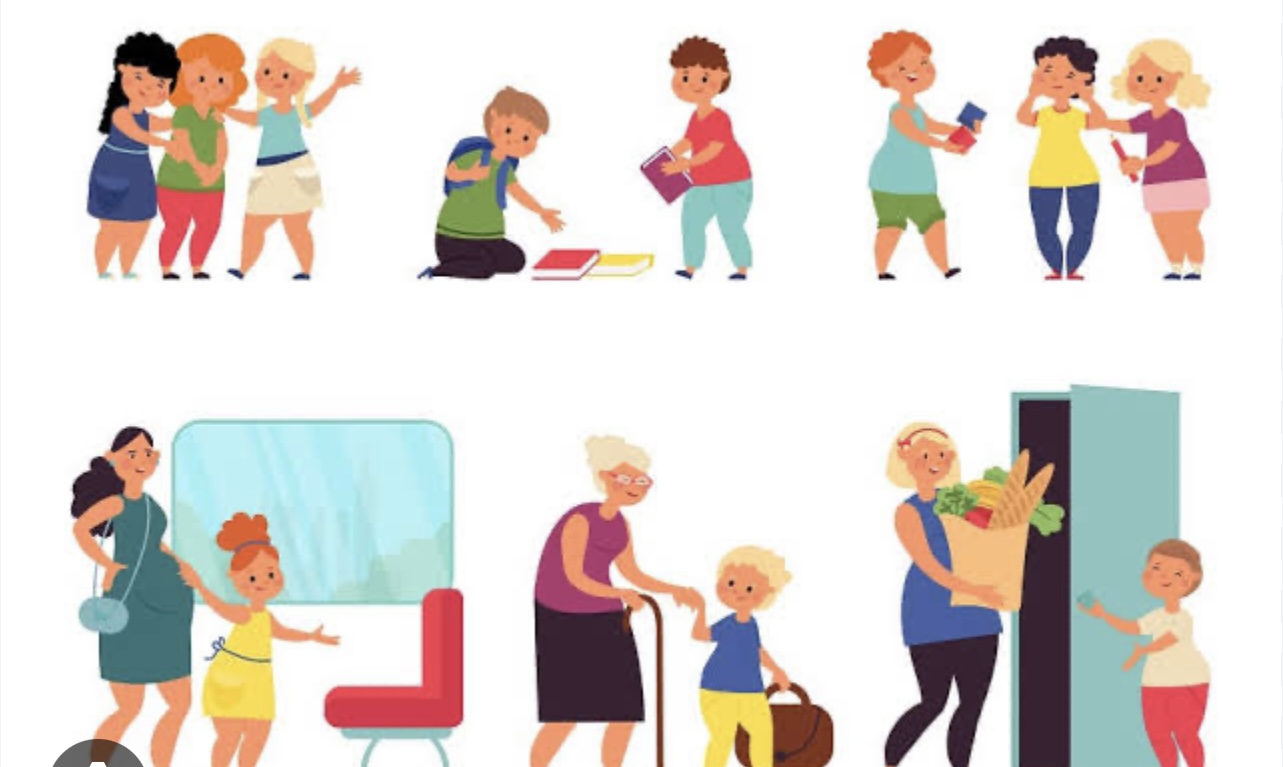30 Good Manners for Kids That Every Child Should Know
Kids washing hands
It’s never too late to start teaching your kids about good manners. We have curated a list of 30 situation-specific good manners for kids that parents must pay attention to. While you may find them common, they hold paramount significance in promoting social-emotional learning to your kid.
When At Home
- Saying ‘Please’ and ‘Thank You
One of the obvious entrants in the good manners list, this can be great to start with. Teaching your child to say ‘Please’ develops consideration while saying ‘Thank You’ instills a sense of gratitude and appreciation. These kindness activities for kids don’t only build social skills, they also make kids more considerate and respectful of others’ actions.
- Respecting Elders and Younger Alike
They say, ‘Change starts at home’, so the next time you want your child to respect people outside the home, it’s crucial to begin exercising the same at home.
- Asking for Permission
Children must be taught to ask permission for reasons such as touching or taking things of others. It conveys the idea of consent to them, which you must already know weighs heavy importance.

- Avoid Interrupting Conversations
Emphasis must be kept on exercising free speech and ‘Let others finish before you speak’. This good habit goes a long way in honing their communication for academic and professional space.
A great way to escalate the helping trait of your kid is to motivate them to actively help in household chores such as tidying up their room, mopping, washing laundry, etc.
- Respecting Others Privacy
Start by educating your kid about how everyone on Earth needs their own space and time. Knocking on the door before entering the room, asking permission, not barging into the adult tea sessions. Etc
When At the Dining Table
Girl learning table manners
- Putting Away Smartphones
It has to be the most crucial table mannerism that can be taught to younger ones. Ask them to push off all their technology during mealtime for 15-20 minutes.

- Using a Napkin
Children must be taught to keep a napkin handy at all times to save them from creating an awkward curry mess at the table.
- Closing the Mouth While Eating
An important lesson here for kids is that nobody wants to know what’s in their mouth and, obviously, not hear any chewing sounds as well.
- Asking Before Leaving the Table
It develops politeness in children, so always ask them to be excused before leaving the table. It can be practiced both when at home or at a restaurant with a group of people.
Related Reading: Empathy vs Sympathy: How to Raise an Empathetic Child
When Guests Are Home
- Opening the Door for Others
Whenever a guest arrives home, teach your child to open the door for them, greet them and escort them to the living area.

- Shaking Hands With a Smile
Shaking hands firmly is a beautiful way of greeting others and sparks joy amongst both individuals.
- Standing Up When Elders Enter the Room
One of the subsets of showing respect to the old and elderly, children must know the courtesy of standing and greeting them with glee.
- Serving the Guests
When kids are taught to offer to serve the guests at home, it makes them responsible and courteous at the same time.
- Keeping Up the Conversation
‘Awkward Silences’ are the roots of self-doubt and antisocial behavior. Kids must be worked on initiating and keeping up the conversation with the guests at home. However, the thin line between threading conversations and unnecessary boasting must be taught carefully.
Related Reading: Creative Journal Prompts for Kids to Encourage Good Habits
When You Are the Guest

Mother and daughter preparing lunch
- Don’t Go Uninvited
Introduce the kids to the concept of visiting their best friend’s house only when they are invited or for any other exceptionally important reason.
- Establishing Stay Limits
Making kids understand that they cannot stay over at their friend’s house for as long as they want holds much weight. Teach them to establish a decent time limit for being a guest at anyone’s place.
- Following the Rules of the Host’s House
A good guest is someone who adheres to the host’s house rules. Children must learn to draw a line between following the rules at home and following the rules at the host’s place. Teach them, ‘When in Rome, do as the Romans do.’
- Offering Help
Children must be taught to fairly assist the host in their work and not burden them. It allows you to build teamwork, leadership, and other essential social life skills in your little ones.
- Acknowledging Your Host’s Hospitality
It broadly comes under gratitude and appreciation. Thanking the host family for their hospitality and love strengthens the essence of maintaining relationships among children.
Related Reading: Best Positive Reinforcement Tips For Teachers & Parents
When You Are Out and About
- Saying NO to Foul Language
It is common for children to pick foul words at school or on the playground. Therefore, parents must keep an eye on and teach their children how foul language can be disrespectful and hurtful to others.
- Practicing Sharing
A vital social skill, sharing marks the importance of care and compassion that ultimately adds to socio-emotional development. From a young age, the habit of sharing one’s food, belongings, and other tangible items must be introduced to children.
- Introducing Yourself to Others
A perfect way to initiate a conversation outside the home, children must be taught to make their introduction to others. A warm greeting with a smile, sharing your name, asking their name, saying ‘Nice to meet you’- the common hierarchy of introducing is a big thumbs up to begin with.

- Reciprocating Customary Greetings
The young ones must know the art of reciprocating greetings when the other person initiates the introductions. The common answers to questions like ‘How Are You?’, ‘What Are You Up to?’, ‘What’s Up?’ etc. must be tutored to children.
- Learning to Apologize
More often than not, children are under the impression that initiating an apology or making an apology at all makes them less dignified. Such behavior branches out into toxic traits in adulthood. So, parents should teach their kids to take responsibility for their actions and initiate an apology when needed.

Father teaching kids personal hygiene
- Saying ‘Excuse Me’
To build up consideration in kids, they must be taught the etiquette of saying ‘Excuse Me’ whenever the need arises.
- Not Calling Names
Kids in school mostly have nicknames for each other, but sometimes it gets hurtful. Therefore, it is important to draw on their empathy and tell them that they should never call their friends and family mean names.
- Following Sportsmanship
Winning and losing is a part of life. Inculcating the sportsman spirit in kids means that you are teaching them to acknowledge others’ success with grace and humility. This wards off negative emotions like jealousy, hatred, and revenge in children.
- Avoiding Arguments With Others
Arguing unnecessarily with people should be discouraged in children. Lessons in maintaining calm, self-regulation, and patience should be encouraged to avoid growing children into aggressive adults.

- Maintaining Basic Hygiene
Good manners like washing hands, not spitting on roads, throwing garbage in the bin, etc., must be encouraged in children until they become a habit. Children must be tactfully guided about maintaining hygiene at home and in public places.



